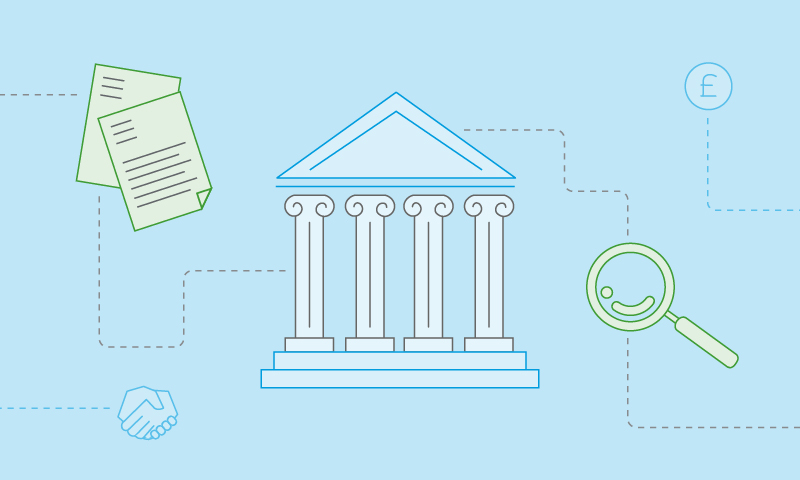10 June 2022
One of my colleagues recently explained to us that, to understand crypto, think of the basics of a transaction pre-currency. You would have traded something you had for something you wanted, for example, a cow for some magic beans. Eventually we developed coins made of precious metals, so even if I did not want gold in exchange for my cow, I knew that gold had a value and that someone else would want it. When governments and banks joined the system, we swapped coins with intrinsic value for IOUs from the bank in the form of paper, and latterly plastic.
In this increasingly digital age, physical money is rarely used and buying online or through Apple or Android Pay is more common than ever. These digital transactions are managed and recorded through your personal spreadsheet eg a £15 purchase from Amazon means I have £15 less on my spreadsheet and Amazon has £15 more.
Crypto might be used as the next stage in this evolution. It’s a 100 per cent virtual transaction that is simply a transfer of digital assets. Blockchain (a type of decentralised digital ledger) keeps a record of who has paid what to whom. Rather than being on a separate spreadsheet as it would be with a bank, this is one worldwide spreadsheet (ledger) of all transactions in that currency.
Jointly with Sarah Williams, Legal Director at BDB Pitmans we have explored the world of cryptocurrency and what it means for charities.
How can cryptocurrency be used?
El Salvador was the first country in the world to officially classify Bitcoin as legal tender. If I go into a shop in El Salvador and pay in Bitcoin, the Bitcoin network verifies the transaction without the need for a central authority like a bank. Instead, computers on the network confirm the validity of the payment. Every single transaction is recorded on the blockchain (akin to a public ledger, or database), which makes fraudulent transactions on the network virtually impossible.
Transferring funds internationally becomes simpler and, in theory, cheaper, with the ability to make international payments almost instantly. Bitcoin and other cryptocurrencies allow for cross-border transfers at a uniform value with no government interference. There are no exchange rates and transaction fees can be significantly lower. The storage costs are minimal and, like other currencies, Bitcoin can be divided into very small units – you can trade a millionth of a Bitcoin.
As we write this, there are 18,651 different coins in existence, the top five by market capitalisation being Bitcoin, Ethereum, Binance Coin, Solana and Cardano.
The potential as a new stream of funding for charities is also significant. At 11 March 2022, according to Blockchain analytics company Elliptic, $63.8m (approximately £48m) had been raised in cryptoasset donations by the Ukrainian government following the outbreak of war with Russia.
What does this mean for charities?
Cryptocurrency raises many questions for charities, including what risks and opportunities this new technology presents.
Risks and challenges associated with cryptocurrency include:
- knowledge and capacity risk – are you suitably equipped?
- huge fluctuations in value;
- tax implications for both donors and charities;
- operational security risks;reputational risks – do you know the source of the funds?;
- practicalities of how cryptocurrency transactions are recorded;
- it’s a largely unregulated sector;
- environmental concerns regarding energy use; and
- how do cryptoassets sit in the responsible investing approach?
Cryptocurrency use is evolving fast, with a small number of pioneer charities in the UK already accepting cryptocurrency donations and exploring other use cases. So is cryptocurrency for charities here to stay?
In the first of a series, here we have highlighted below some key considerations for charities:
Reputation
In May of this year, the Fundraising Regulator posted a blog considering the possibilities offered to charities by cryptocurrencies (and NFTs – ‘non-fungible tokens’; in essence, representing ownership of unique digital items eg art, videos, trading cards). While the Regulator noted the opportunities on offer – including the potential to tap into new donor pools – it also highlighted issues around transparency, volatility and environmental impact.
Transparency is important because charities need to be comfortable that they are not inadvertently going to be associated with the proceeds of crime, or used as part of a money laundering scheme. Charities also need to be aware of, and take time to understand, the environmental concerns relating to the carbon footprint of blockchain technology. These concerns arise from the high energy consumption used in producing cryptocurrencies (ie generating new coins) and validating transactions – known as ‘mining’.
From a reputational perspective, charities need to be comfortable that they have understood the risks and considered these in the context of their purposes and stakeholders. Charities also need to be able to respond quickly: Following a vocal social media backlash relating to the carbon footprint specifically associated with the creation, buying and selling of NFTs, the World Wildlife Fund (WWF) announced in February this year that it was ending a project which had been designed specifically to fund conservation work through the sale of NFTs.
WWF’s statement, issued less than 48 hours after the campaign was launched, explained the charity would ‘…now fully assess the impact of this trial and reflect on how best we can continue to innovate to engage our supporters’. While more environmentally acceptable blockchain technologies may be emerging, stakeholders are divided in their opinions and, as the WWF experiment shows, criticism can be swift and loud.
Stuart Thomson, Head of Public Affairs at BDB Pitmans, who advises charities on reputation management, highlights the challenges from a media perspective. Reputation management, particularly on issues such as crypto, is about building understanding:
‘The media need to know you are taking all the steps necessary to protect yourselves. All the decisions taken by an organisation should be considered, weighed against the risks, mitigated if needed, and documented. Decisions that go wrong are one thing but ill-informed decisions taken on the basis of instinct that go wrong will be seen as unacceptable. That is where damage to reputation is unavoidable.’
Governance
Charities should approach cryptocurrency and potential use cases for the associated technology in the same terms as any other activity, with the board taking reasonable decisions in line with their trustee duties. Paramount among these duties is to act only in the best interests of the charity and, of course, to safeguard the assets of the charity (including its reputation).
Any charity considering tapping into cryptocurrency as a new source of donations (engaging with new donor groups), for example, should:
- ensure the board has access to suitable technical expertise and is sufficiently well-informed. Seek external advice if necessary;
- review the organisation’s risk management framework, assess the risks and consider how to mitigate the identified risks;
- ensure there are proper processes in place, including monitoring and oversight if using third-party platforms to facilitate (and potentially de-risk) engagement with crypto-donors;
- be aware of, and keep under review, guidance from the Fundraising Regulator (which may include guidance on charities accepting cryptocurrency when it reviews the Code of Fundraising Practice later this year) and the Charity Commission’s guidance on Charity Fundraising: a guide to trustee duties (CC20) and decision-making (CC27);
- review/ adapt due diligence procedures around ‘knowing your donors.’ Go back to basics: the Charity Commission advises a risk-based and proportionate approach to due diligence in its compliance toolkit, depending on the nature of the risks in the particular circumstances. There is no rule against receiving anonymous donations per se, but charities should be alert to suspicious circumstances and put adequate safeguards in place; and
- review existing giving strategies and policies and ensure the trustees’ decision making process has been appropriately documented.
More generally, the UK government recently set out its ambition to make Britain a global hub for cryptoassets technology and investment, including a number of proposed reforms that will see the regulations and aspects of tax treatment of cryptoassets evolve. The intention is to ensure ‘…high regulatory standards so that these new technologies can ultimately be used both reliably and safely’, which may – in turn – enable charities to feel more comfortable engaging with this sector.
In the meantime, it is worth noting that exchange platforms (which, among other things exchange cryptocurrencies for government-backed currencies (eg US dollars, pound Sterling), and the use of which might form part of a charities risk-management strategy) are already required under money laundering regulations to undertake customer due diligence. Numerous tech companies have also emerged in the last few years to help organisations meet money laundering requirements, including identifying and monitoring suspicious activity.
What next?
Get in touch to speak to your usual contact, Hannah Catchpool or Sarah Williams at BDB Pitmans about what your charity needs to consider in relation to cryptocurrency.
To receive our latest charity insights and events, select your preferences here.
BDB Pitmans
Sarah Williams is a Legal Director in the BDB Pitmans charities and not-for-profit team. She has over 15 years’ experience advising on governance, commercial, fundraising and regulatory matters.








